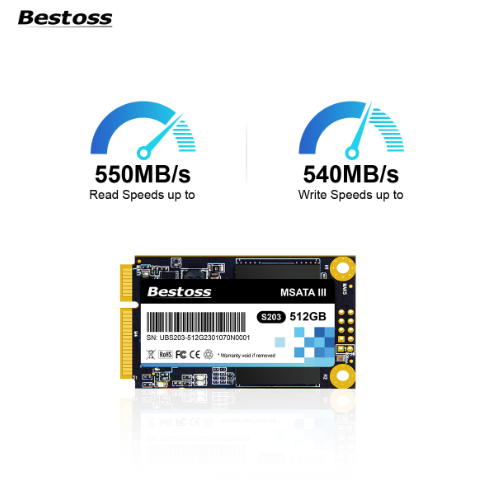- Home
-
Products
-
Product collection
-
- Application
- OEM&ODM
- News
- About Us
- Contact Us

In the world of computer hardware, Solid State Drives (SSDs) have taken center stage as a game-changing storage solution. As technology advances, choosing the right SSD for your computer becomes a crucial decision. This article serves as your guide to navigating the world of SSDs, helping you make an informed choice that aligns with your needs and preferences.
Before delving into the specifics of SSDs, it's important to evaluate your computer usage. Are you a gamer seeking faster load times? A creative professional dealing with large media files? Or an everyday user looking for smoother multitasking? Identifying your usage patterns will guide you toward an SSD that best suits your requirements.
SSDs come in a range of capacities, from modest sizes to capacious options. When choosing the right SSD, strike a balance between your storage needs and your budget. For operating system responsiveness and a few applications, a smaller capacity SSD (e.g., 256GB or 512GB) may suffice. If you're dealing with extensive media files or require ample space for your projects, consider larger capacities (1TB or higher).

Performance is a key factor in choosing an SSD. Look for drives with high read and write speeds, as these determine how quickly data is accessed and transferred. A faster SSD leads to quicker boot times, snappier application launches, and smoother overall performance. Consider SSDs with NVMe (Non-Volatile Memory Express) technology for even greater speed and efficiency.
SSDs are available in various form factors, including 2.5-inch, M.2, and PCIe add-in cards. The form factor you choose should be compatible with your computer's available slots and connectors. M.2 SSDs, for example, are compact and fit directly onto the motherboard, making them ideal for laptops and compact desktops.
When it comes to SSDs, endurance refers to the drive's ability to handle a certain amount of data writes over its lifespan. Higher-endurance SSDs are suited for heavy workloads, while standard endurance drives are well-suited for general computing tasks. Checking the manufacturer's specifications for endurance ratings can help you gauge a drive's longevity and reliability.
Like any investment, your budget plays a significant role in your decision-making process. SSD prices have become more competitive, making them accessible to a wider range of users. While top-of-the-line SSDs offer exceptional performance, there are also budget-friendly options that provide a substantial improvement over traditional Hard Disk Drives (HDDs).
Before finalizing your choice, take the time to read reviews and compare different SSD models. User experiences and expert opinions can offer valuable insights into real-world performance, compatibility, and reliability. Researching customer feedback can help you make an informed decision and avoid potential pitfalls.
Choosing the right SSD for your computer is a decision that directly impacts your computing experience. By assessing your needs, considering capacity, evaluating performance, and factoring in compatibility and budget, you can find an SSD that aligns perfectly with your requirements. As technology continues to advance, SSDs remain a cornerstone of modern computing, delivering speed, reliability, and efficiency that enhance every aspect of your digital life.
By continuing to use the site you agree to our privacy policy Terms and Conditions.